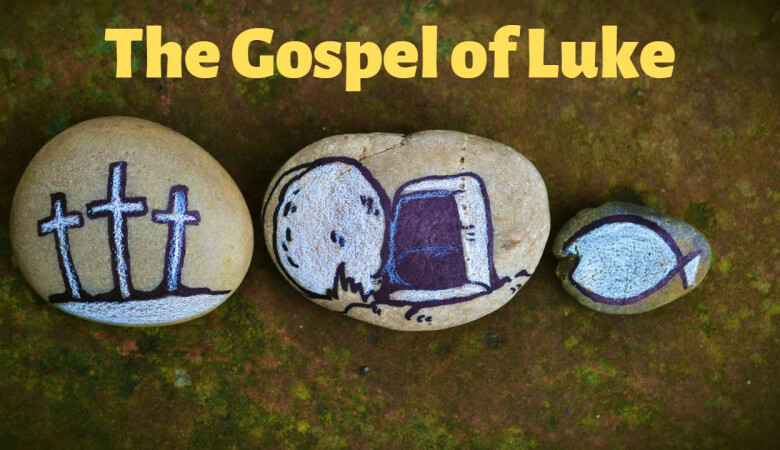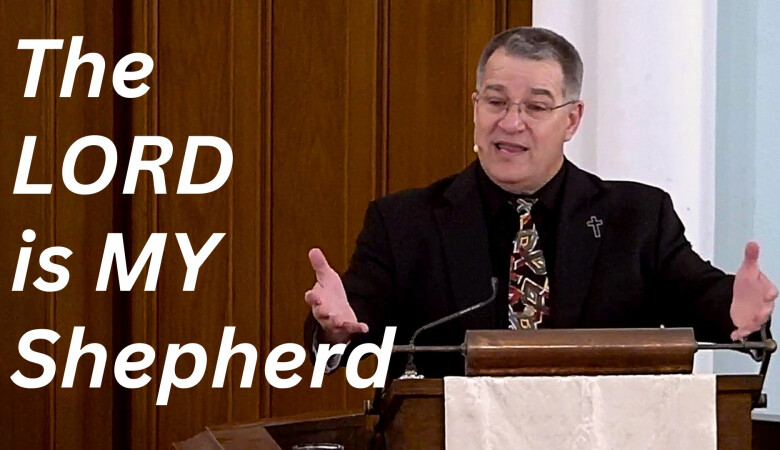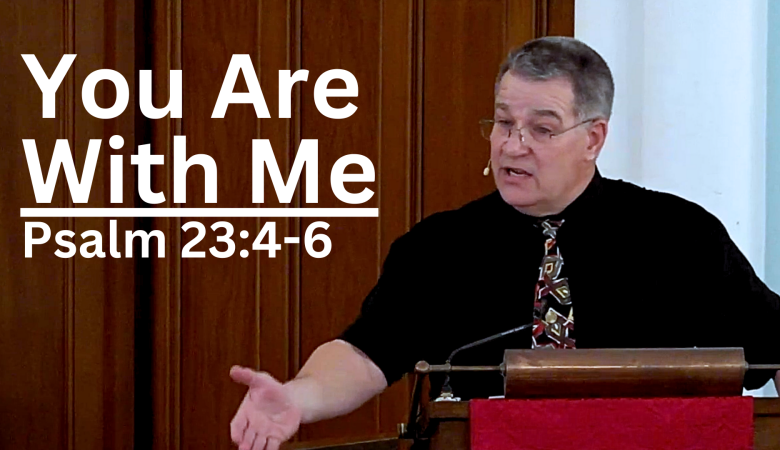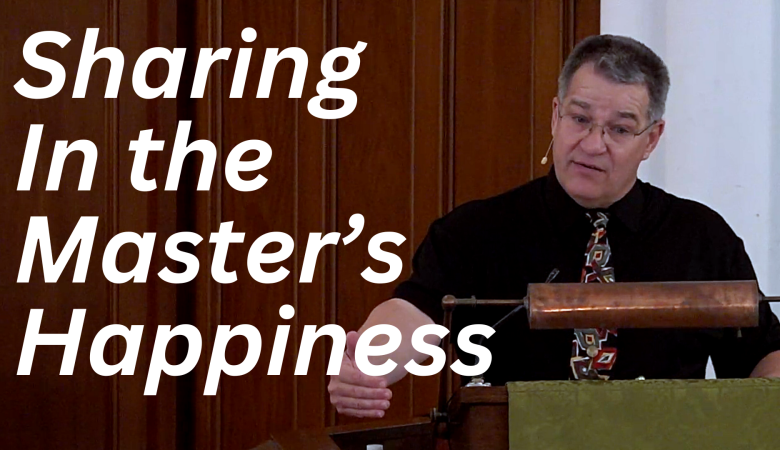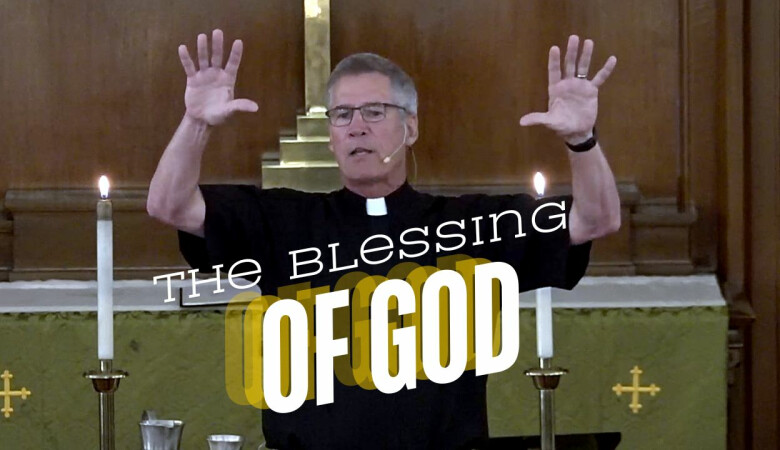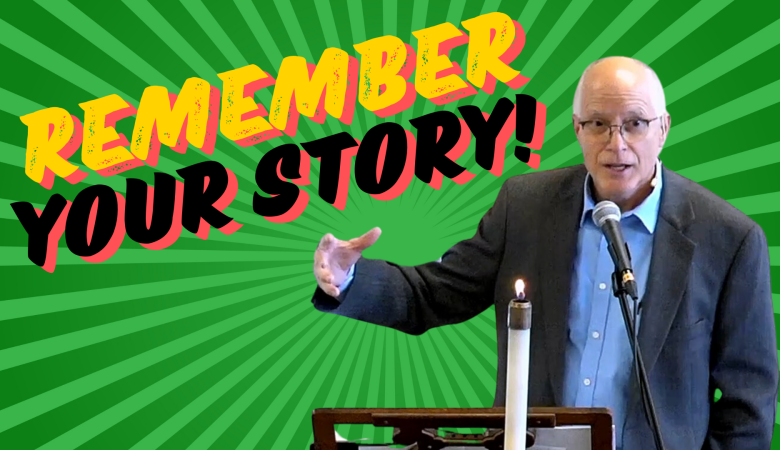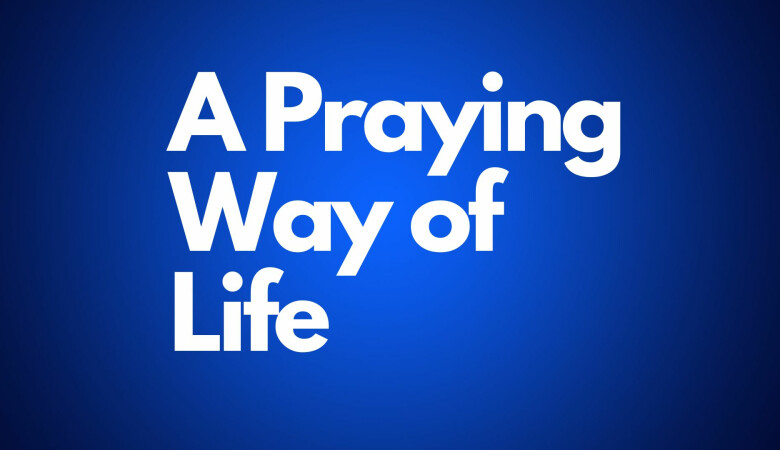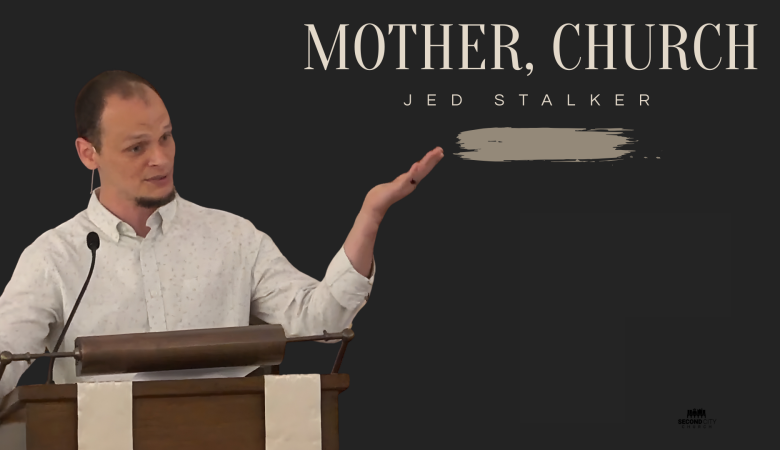Series: Guest Preachers
Wisdom From Job
September 24, 2023 | Andy Phillips
Passage: Job 1:1-42:17
ALL SERMONS IN SERIES
Summary
We all know life can be difficult. Suffering is part of our walk. Families are broken by sin. Ones we love, sometimes even our children, die. Job's story provides us with guidance, especially about how we should approach God as our world crumbles.
Transcript
This morning we're going to look at Job. We're going to look at the whole book. Yeah, I know. I thought about that. It’s not real bright to try to capture this in one shot. But I've been sitting with this book for a long time. I think in April I did a summer series at another church, and it's been perhaps one of the most helpful books that I've meditated on, reflected on.
One of the things that I've been experiencing lately, and I know all of us and some of you in particular, I've run into situations in life where God seems to do things that just doesn't make sense. And I've struggled with that. I'm educated, well-educated. I've been a pastor for a lot of years, but I continue to struggle with that. Why does God do what he does? And especially with pain and suffering. Especially with pain and suffering. Especially with the loss of life with illnesses that are leading to death. And we've got a couple of close friends that have come face to face with it. Another one just recently within the last three months.
And so Job presents itself as the place to go to get answers for those kinds of things. After all, here's a guy that's afflicted and suffers incredibly. And in a lot of ways, Job does just the opposite. It's a book that really doesn't seem to answer at all. In fact, the answer that is given isn't even an answer when God answers Job out of the whirlwind. But there's incredible wisdom in this book. Incredible wisdom in this book. And it's been very helpful as I've processed and watched others process dealing with the trials and the struggles of life. And it's important to remember at the start that this book historically has been grouped in with wisdom literature. It's not simply a historical record of a guy named Job from a place called Uz.
If you start there and try to stay there, it's going to be squirrely. I mean, it's unusual. There are unusual characters in this book. Job himself, he's not a Hebrew. And the entire book is focused on him, one person. Super unusual in terms of Old Testament books. There's no mention of covenant. There's no mention of law. And then there's this unusual argument. We read just a few moments ago of Job as blameless, utterly blameless. There's no hint, no reference to the fallen nature, to indwelling sin. That doesn't even come up anywhere in the book. And then there's unusual suffering. You know, there's this cliche around the patience of Job and it's thrown here and there. But we're not talking patience here. Job lost absolutely everything, everything. His home, his livelihood, his children, his children. We just buzzed by that. But let that sink in. And to make matters worse, what we read just a few moments ago, he's then inflicted with these awful boils. His body is clothed with worms and scabs, we read. My skin is broken and festering.
So it's this super extreme, super unusual suffering. And then, frankly, and if we're being honest about what we're reading in the first three chapters of Job, we've got a very unusual God that's presented there. Can we at least acknowledge that in those first three chapters he comes across as capricious, cavalier, utterly lacking in compassion and toying with this man's life, making a bet with the devil?
And we sit with that. What do you do with it? Part of this wisdom literature that's pushing us, I think, ultimately to give us great wisdom as we wrestle through these kind of hard questions.
What is the Wisdom of Job’s Prayer?
So, what is the wisdom? What do we glean from Job? Well, I think one of the more obvious things to me, as you look at Job's prayer and his interaction, he's got several friends that are interacting with him for those unfamiliar with the text. And they come, they do the best thing they could for him. And when they first arrive, they sit silently with them for seven days, and then they open their mouth. And that ends up being a problem. So, there's this dialogue back and forth between Job and his so-called friends. But what's intriguing to me is Job's lament, because he is complaining. He is lamenting. He is expressing his sorrow. And his lament is emotionally honest, and it's boldly accusatory. Listen to the language. Chapter 7 speaks to God, "Will you never look away from me, or let me alone, even for an instant? If I had sinned, what have I done to you? You who see everything we do? Why have you made me your target?" Verse 13, "Stop frightening me with your terrors."
Chapter 10, "What charges do you have against me? Does it please you to oppress me, to spurn the work of your hands?" And then chapter 30, "I cry out to you, God, but you don't answer. I stand up, but you merely look at me. You turn on me ruthlessly. With the might of your hands, you attack me." And this isn't just Job that speaks like this. I mean, this is bold. It's emotional, and that's just a sampling. You read through it. You'll see this over and over and over again. We read a portion of Psalm 88. I don't know if it struck you as odd, but when Nicole read it, and then we sing the Gloria Patri right after that, it's going to, whoa. But that's Psalm 88. It's accusatory. It's bold. It speaks directly to the pain and the agony. "You have put me in the lowest pit," the Psalmist charges. "You, God, your wrath lies heavily on me. You overwhelm me with all your waves. You have taken away my closest friends." Yowza! But this is unique. Psalm 89, this long litany of how wonderful God is, and then the Psalmist goes, "What the heck? You're not fulfilling your covenant. Everything's falling apart." Psalm 40, 43, numerous Psalms like that. But the part of his lament that's interesting, and what differs for him versus the way I lament, I lament over losing stuff. I lament over my headaches, over my back, over, you know, Job laments about his loss of his sense of God's presence.
Of course, his counselors say, "Job, listen, if you'll seek God earnestly, if you'll plead with the Almighty, if you're pure and upright, even now he'll rouse himself on your behalf and restore to you your prosperous state." They missed it. They think Job is anguishing over his lost stuff, but that's not where he spoke. 58 times Job speaks to God directly. His counselors never do. They speak about him a lot, but they never speak directly to God. He sits in the question; he anguishes over 34 chapters. In chapter 29 he says this, "Oh, for the days when I was in my prime, when God's intimate friendship blessed my house, when the Almighty was still with me." That's what he longs for. His lament was theocentric, God-directed, God-centered. It was all about his sense of loss of God. His lament, he laments God's silence. "I cry out to you, God, but you do not answer. You've been there. God's refusal to act. God, you merely look at me. God's oppression. You turn on me ruthlessly. Why do you hide your face and consider me your enemy?" So it's a very God-ward, but the other part that's really intriguing is that there's this irrational hope that he has in the midst of all this. One of the most often quoted sections in the book of Job is in chapter 19, which we read this morning. He says this, "I know that my Redeemer lives, and that in the end he will stand on the earth. After my skin has been destroyed, yet in my flesh I will see God. I myself will see him with my own eyes. I am not another. How my heart yearns within me." His hope is hanging on seeing his God, on God appearing. You know, we read into this, certainly, the resurrection, our ultimate hope that we look toward. Job doesn't have that in mind. Typically, Old Testament writers didn't, but there was something that he knew that he would see his God in the flesh, that God would come through. A hope that he saw dimly, a hope, therefore, with an answer and an answer that we'll look at in just a second.
In all of this, what's interesting is that ultimately Job's lament is this expression of deep trust. He trusts God enough to question God, to accuse God. He feels safe enough.
You know, you've heard the phrase, "It's not for us to question the ways of God." The book of Job shoots that one all to pieces, because that's exactly what he does. That's exactly what he does. And what does God think of all this questioning, these accusations? In chapter 42, we read, as God speaks to his friends, "You have not spoken the truth about me, as Job has."
As Job has. The Tyndale Old Testament commentary series, the author of the book of Job, says that God welcomes moral judgment from man's side, even when that judgment is directed against God.
Job did that. The Psalmists did that. The question is, why don't we? I was talking with a spouse of this friend of mine who just was diagnosed with terminal cancer, and I wanted to comfort her and assure her, and I said, "I want you to know that God loves you. He's with you, and you know the things the pastors say." And she says, "Right now, I'm not feeling that at all." And I went, "Of course not." So, what does she do with that? What does she do with that?
And I thought about that. God invites that kind of anguish to be poured out to him. He welcomes that. He welcomes that. Brendan Manning puts it like this. He says, "Sometimes we harbor an unexpected suspicion that God cannot handle all that goes on in our minds and hearts. We doubt that he can accept our hateful thoughts, cruel fantasies, bizarre dreams. We wonder how he would deal with our primitive urges, our inflated illusions, our exotic mental castles. The deep resistance to making ourselves so vulnerable, so naked, so unprotected is our implicit way of saying, "Jesus, I trust you, but there's a limit. There's a limit. Do we trust God enough that we can be that vulnerable, that accusatory, that bold?" That's hard. That's hard.
Job Invites us to Lament before God
I heard a pastor who was frustrated with his teenage daughter, imagine that, and particularly frustrated because his daughter said to him one morning, "Dad, I hate you," and went storming off. And they had had this difficult relationship. And the counselor said, "The pastor, he said, "No, that's actually a very good sign because she feels safe enough in the relationship that she can express to you how she really feels." And there's something to that. Job had this relational security that he was able to be that bold, that transparent, that accusatory.
It's what enables him to sit in the face of all that he endured and make himself vulnerable with the anguish. He has a hope. You know, we have this more secure hope in Jesus, a more secure hope, a more certain hope that God is with us and what Jesus has done for us and his commitment and pledge to us.
We ought to be experts at lamenting. But the other day I thought, I'm kind of ticked at God because he's not. I won't go into what he's not, but you've been there. But I couldn't quite bring myself to tell him that. And now I just did so he knows. But our minds operate like that. God knows all things, but for us to express that, to articulate that, to be vulnerable enough, to really lay that out there, that's what it means to lament.
Faith honestly laments. So we learned how to lament. The book of Job seems to me, he invites that. The second thing, bit of wisdom that comes out of the book of Job, is that the kind of answer we crave in these difficult scenarios, the why, why me, why this, is not the kind of answer that we need or will ultimately help. You know, Job's friends offer answers, attempt to answer the why, the why me, the whole time they're saying these different things. They explain this mystery. They try to eliminate the paradox. They offer truth, try to bring clarity, theological certitude.
Here's some of the things they say. Chapter four, "Those who plow evil and those who sow trouble reap it. You reap what you sow, Job." Does God pervert justice? Does the Almighty pervert what is right? Can a mortal be a right and more righteous than God? You go on to say in chapter 11, "Yet if you devote your heart to him and stretch out your hands to him, if you put away the sin that's in your hand and allow no evil to dwell in your tent, life will be brighter than the noonday and darkness will become light morning." Blessed is the one whom God corrects.
What does God say about that advice? He says they did not speak the truth about God. There were correct answers and a lot of what I read is correct, is theologically correct, is biblical, but is that the same as speaking the truth about God? What the book of Job does is virtually every answer we want to run to for the wise is taken off the table. You must have sinned. Job was blameless that said repeatedly. We spin that because it makes us a little uncomfortable, but again, keep in mind this is wisdom literature. God has a purpose. Did you catch the words in Job 2?
When God speaks to Satan, "You incited me against him without cause." No purpose. We're all sinners. We all deserve this. Never mentioned. They try to speak the truth. They try to solve the mystery. They try to answer the why's. And those are all taken off the table. The issue is we want answers and maybe, no, I was going to say maybe it's just me, but I know better. We want answers. All of us want answers for the why. Not having a reason why makes us uncomfortable. We don't want mystery. We don't want to have to live with paradox because we want some sense of control in our life and information is in control.
We crave it. We want to know why so we don't need to trust. So we don't need the relational security. We don't need faith if we have all the answers. And I'm a control freak like a lot of you, and I realize as I reflect back on my theological education, it was this mad pursuit to be able to answer why. Why? The sovereignty of God, the free will of man. I thought I had that baby figured out. That's tough. Those things are tough. All those things because I figured if I could understand the way God worked as I pursued theology, pursued my understanding of the scripture, then I'd have a better grasp and could control things a little bit better. One writer puts it like this, "True faith involves not knowing, even not needing to know, but we've made faith demanding to know and insisting that we do know."
And it's much more a search for control than it is a search for truth, love of God, to need to pigeonhole everything, to get everything right in the sense of I know and therefore I am in control.
The idea that we have a God that we can't control and who doesn't give us answers to the wise is unnerving, and we have no guarantees that bad things won't happen. We have no guarantees that we'll live a life of peace and prosperity. It forces us to live with mystery, with paradox, and then when tragedy hits, when we face these life-altering struggles, we're at a loss.
What We Need More Than Answers
So what's the answer that we need? What's the answer that will sustain us? What's the answer that has sustained saints throughout the years? Job's friends thought it was clarity, theological certitude, and what Job recognized is that what we needed was God himself. Job was grounded in the transcendent, bold enough to ask the kind of questions he asked. He's honest about how he thinks and feels, and then in chapter 38, after chapters, after endless verses of questions of debate, God speaks out of the whirlwind and he says, "I will answer." You know what his answer is? It's a non-answer. You go, "Oh great, here's the answer," and then he simply reveals himself. He simply reveals who he is. It's this appearance of God. God answers and he reveals himself. It doesn't fix the problem, and you never see Job ask for a fix, but he moves Job from, as Job puts it, "a hand-me-down religion from a theological religion to a living spirituality." And that was Job's hope all along. Eugene Peterson translates the last couple verses of chapter 2 like this, or his paraphrase. "I admit I once lived by rumors of you. Now I have it all firsthand, from my own eyes and ears. I'm sorry, forgive me. I'll never do that again, I promise. I'll never again live on crusts of hearsay and crumbs of rumor." Typical Eugene Peterson. And that's what we need. Not answers, but to taste the reality of their very presence of God. We have this relational security. Jesus died for us, rose for us, and if you believe that, good. That's where our hope is anchored. But that doesn't quite go far enough if that's where it is. If it's simply a belief, something you believe, does it go deeper than that? Will it sustain you? Will the reality, the it's the reality, the presence of God that is what sustains us? Paul's words to the church in Ephesus, what he prays for is that they would have power to understand the multi-dimensional love of Christ. And then secondly, he prays, "May you know the love of Christ that surpasses knowing." We need power to grasp it. If you've grasped something of that that's evidence of God's work in your life, but it's something, it's knowing that goes beyond knowing. It's deeper.
And we need to grasp the love of Christ. And if you get it, let's come from outside. We've got a friend that I talk to regularly. I'd like him. He's out there. I think he identifies as a Christian, a bit of a philosopher, but he told me, he sent an email to me. He said, you know, I've concluded that Christian faith is just irrational. And so when we got together, I said, tell me why it's irrational. I said, well, it's not based on any objective truth. It's simply this feeling that you have that God loves you. And I said, no, I really don't think that's it. Because the assurance that I have that I am loved by God, not just the theological truth that I know, but the assurance personally is far deeper than a feeling, far deeper than emotion. I think the late Tim Keller called it this trans-rational, which is very Kelleresque, but I think it fits.
It's this sense that we know we are loved. You know, I've had two very distinct periods in my life in my spiritual journey where I felt like the bottom has dropped out of my faith such that I started questioning the validity of the Christian faith once early on. And what held me when I was struggling through a number of different issues, what held me in those times was this assurance of the love of God and Jesus Christ. It held me when I wondered if this new Christian faith was even real. But there was something deep within me that said I'm loved. Christ loves me.
I Kept looking to the cross. It held me, in the midst of burnout, depression, and a sense of betrayal by the church. I know Jesus loves me. So, what do you say? What do I say to the late 20-something daughter when she asks, "What's God doing with my dad? He's taking my dad from me."
Well, nothing unless she asks, seems to me. But if she does, I'm going to tell her to be angry, and she should, and to express that to God. Know that he can handle it. Know that he loves you enough to handle it. And I don't know why this is going on with dad. I don't know why this is happening at this stage, and I don't know that there are great answers for that. But what I do know is that Jesus has you, that Jesus loved you. He suffered the kind of agony that we express in those moments. My God, my God, why have you forsaken me? He has been in that place on the cross. He loves you deeply. He loves you truly. And it's that reality that can sustain you. Can you cling to that?
Can you cling to that and work to rest in that as you process and work through that?
The Mystery of the Cross
One of my favorite quotes, it's kind of troubling, frankly, but I think it pushes at this reality a bit. This guy's a bit of a mystic. He's a bit out there. And he says this. He says, "A mystery of the cross, life, death, and resurrection, that reveals whatever it means that God watches over us, it does not mean that God prevents the tragic thing, the cruel thing, the unfair thing from happening." I don't like that. He goes on to say, "If we are absolutely grounded in the absolute love of God, even though it doesn't promise to protect us from everything, it sustains us in all things so that we can face all things with courage, tenderness, and touch the hurting places in others and in ourselves with this transcendent love." Let's pray.
Our Father, we struggle as we work out our Christian faith. We struggle in those moments when you seem so far off or hesitant to be honest with you about our anguish or hesitant to accuse or hesitant to even turn to you at times. But might your love that's been so clearly displayed for us in Jesus grip our hearts? Might that reality become an empowering presence for us? Even as you call us to seek your strength and seek your presence always, might we lean into that knowing that by your spirit you are with us throughout and in the midst and you will uphold us. And we pray you would touch our struggling hearts and we pray that you would nourish us so that more and more your love for us in Jesus Christ becomes a deepening reality, transforming us heart, mind, and soul. We ask this in Christ's name. Amen.
Series Information
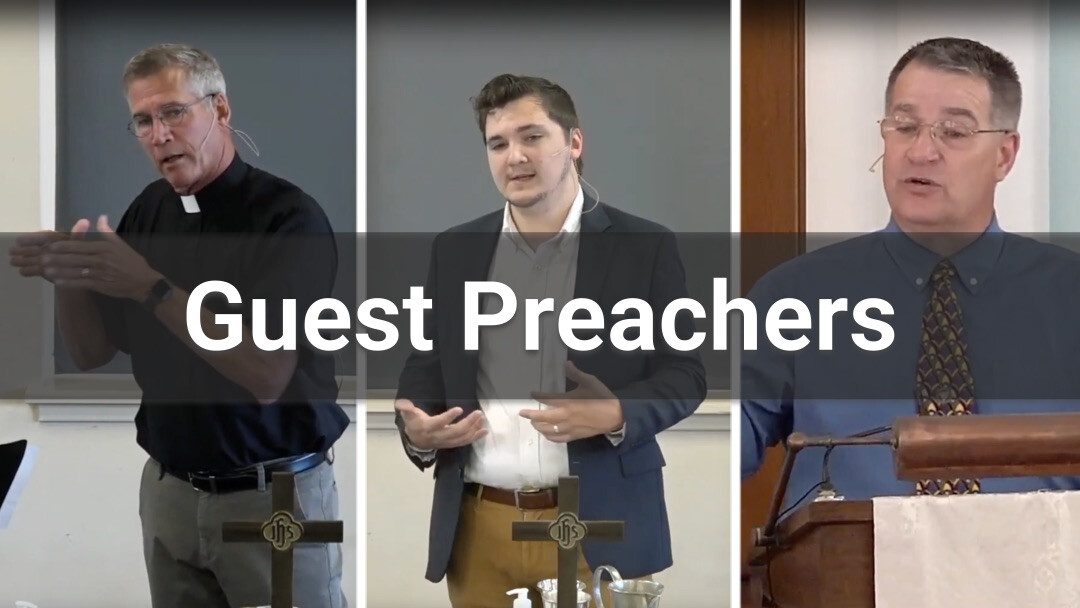
When Pastor Peter is away Second City Church is blessed to hear other men God has gifted to preach.

